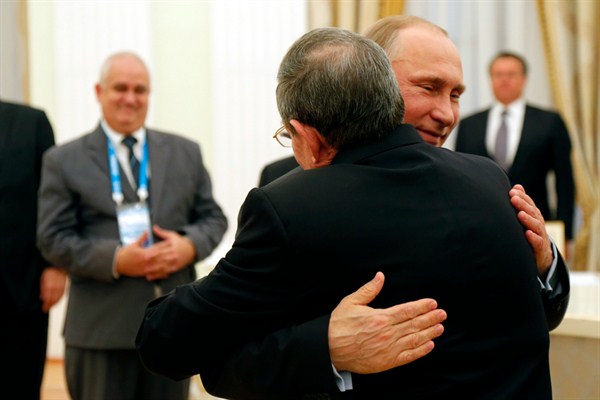Loading your audio article
In 2017, as the Trump administration turned its back on U.S. rapprochement with Cuba, the island deepened its relations with Russia, its longtime backer during the Cold War. Russian exports to Cuba were up 81 percent in the first nine months of 2017, and a possible agreement with Russian oil giant Rosneft may pave the way for Russia to supplant Venezuela as Cuba’s biggest energy supplier. In an email interview, William M. LeoGrande, a professor of government at American University in Washington D.C. and an expert on Latin American affairs, discusses renewed Cuba-Russia ties and the opportunities and obstacles ahead for Havana.
WPR: How have economic and political ties between Russia and Cuba evolved in the past decade? Are there any residual Russian advantages in Cuba from the Soviet era?
William M. LeoGrande: Actually, the rapprochement between Cuba and Russia dates to the turn of the century, when Vladimir Putin succeeded Boris Yeltsin as Russian president and began rebuilding Russia’s global influence by repairing relations with traditional allies. Putin’s 2000 trip to Havana, which resulted in expanded trade deals, was the first step toward a new relationship. That was followed by Raul Castro’s 2009 visit to Moscow during which the two governments signed 33 cooperative agreements, including $354 million in credits and aid for Havana.

